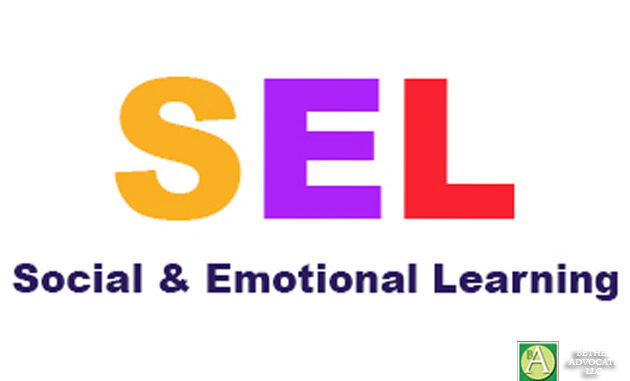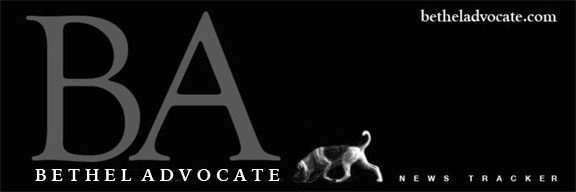
Report by Paula Antolini, October 12, 2021, 9:30AM EDT
Bethel High School Principal Christopher Troetti released a letter to Parents and Guardians on Monday that announced new “programming and tools that will support the development of social and emotional skills of our students.” Named “Social and Emotional Learning” (SEL), the school will utilize an assessment tool called “Devereux Student Strengths Assessment High School Edition-Student Self-Report” (DESSA) to do this task. ThIs “Student Self-Report” assessment will be taken three times over the course of this year, beginning on October 26, 2021, the letter indicates.
Some Bethel parents are becoming increasingly concerned about teaching methods in Bethel Public schools and we are seeing a higher attendance at Board of Education meetings where they are voicing their opinions on numerous new controversial issues that seem to be popping up in school, one being concerns about Critical Race Theory (CRT) ideology being used in the Bethel schools.
Some parents have voiced opinions that SEL and DESSA are the new terms for Critical Race Theory (CRT) and that the new language is used to hide CRT, that the district’s use of a “diversity, equity, and inclusion” as well as the teaching of “social emotional learning” (SEL) causes division by promoting Critical Race Theory (CRT). Opponents feel that officials are teaching that individuals are either a victim or a victimizer and either oppressed or an oppressor.
When asked, Bethel Public Schools Superintendent, Dr. Christine Carver, claims the schools “do not teach Critical Race theory” completely sidestepping the issue when asked if the Critical Race Theory ideology is used in the curriculum, NOT teaching it as a course.
After the George Floyd death in May 2020, Dr. Carver and Principal Troetti released a letter, dated June 16, 2020, to Parents, Guardians, Staff, Students and Community Members, stating that there were “issues of equity, systemic racism and unconscious bias in our school system.” The letter continued, “The Bethel Public Schools has implemented the following actions in the last several years to address issues around equity, systemic racism and unconscious bias” which included: “Conducting an administrative book study on white privilege, systemic racism and unconscious bias (Waking Up White, by Debby Irving) and also “Engage in a book study this summer, offered to all staff, utilizing the resource White Fragility: Why it is so hard for white people to talk about racism, by Robin Diangelo.” Also, “Ensuring our curriculum explicitly teaches the role of systemic racism and unconscious bias in our
history: looks to balance European history with all other cultures and races; and uplifts people of different races as contributors to our collective identity, not only as an oppressed group.”
In a conversation with Dr. Carver several weeks ago, she specifically denied ever mentioning “oppressor” and “oppressed” anywhere, yet these books specifically discuss those issues. In “Waking Up White” the author writes, “I hope it will give you or someone you know new insights into how racism works and why you (or white people you know) can get so anxious when it comes to talking about race and racism.” In “White Fragility: Why It’s So Hard for White People to Talk About Racism” the author refers to “the defensive moves that white people make when challenged racially, white fragility is characterized by emotions such as anger, fear, and guilt, and by behaviors including argumentation and silence. These behaviors, in turn, function to reinstate white racial equilibrium and prevent any meaningful cross-racial dialogue.”
The school’s present “Strategic Plan” also contains numerous words such as: social justice, diversity and inclusion, social awareness, social-emotional growth, empowerment, empowered learner, equity, racial inequality, theory of action, effective stewards of democracy, inclusive environment, all being vague in their interpretation or how it is applied in teaching students.
View recent letter in full from Principal Troetti, detailing SEL and DESSA below.
*****
October 11, 2021
Dear Parents and Guardians,
Now more than ever, we recognize the importance of social and emotional well-being for youth. Social and emotional learning (SEL) is critical to academic success, positive interactions and engagement in the community, and eventually, success in adult life. Information about SEL can be found here.
Our district’s strategic plan focuses considerable attention on programming and tools that will support the development of social and emotional skills of our students. Due to our commitment to SEL, Bethel was fortunate to be selected as one of the pilot districts by the Connecticut State Department of Education to utilize an assessment tool called the DESSA (Devereux Student Strengths Assessment) High School Edition-Student Self-Report. This assessment was designed to help students strengthen their social and emotional abilities, in and outside of school. The DESSA is published by Aperture Education (www.ApertureEd.com). Connecticut chose the DESSA in part because of Aperture Education’s strong procedures to protect student data privacy.
The Student Self-Report assessment takes approximately 15-20 minutes to complete and will be taken three times over the course of this year during the student’s advisory period. Sample questions from the assessment include: During the past 4 weeks, how often did you take steps to reach a goal? and During the past 4 weeks, how often have you looked forward to classes and activities in school? The results of the assessment will not be part of a student’s grades. However, students will be able to view their scores and reflect on their strengths in social-emotional skill areas including: self-awareness, social awareness, goal-directed behavior, self-management, optimistic thinking, relationship skills, personal responsibility, and decision making. The first assessment will be given on October 26th.
We will be using information from the DESSA, including information about our students’ strengths and areas for growth, to plan and deliver SEL for our students. We will also use the information to identify students who require additional social and emotional supports in school. Finally, we will be sharing the assessment results with parents.
Please let us know if you have any questions about the DESSA assessment or the ways in which we support the social and emotional needs of our students.
Sincerely,
Chris Troetti
Principal
Bethel High School
###
